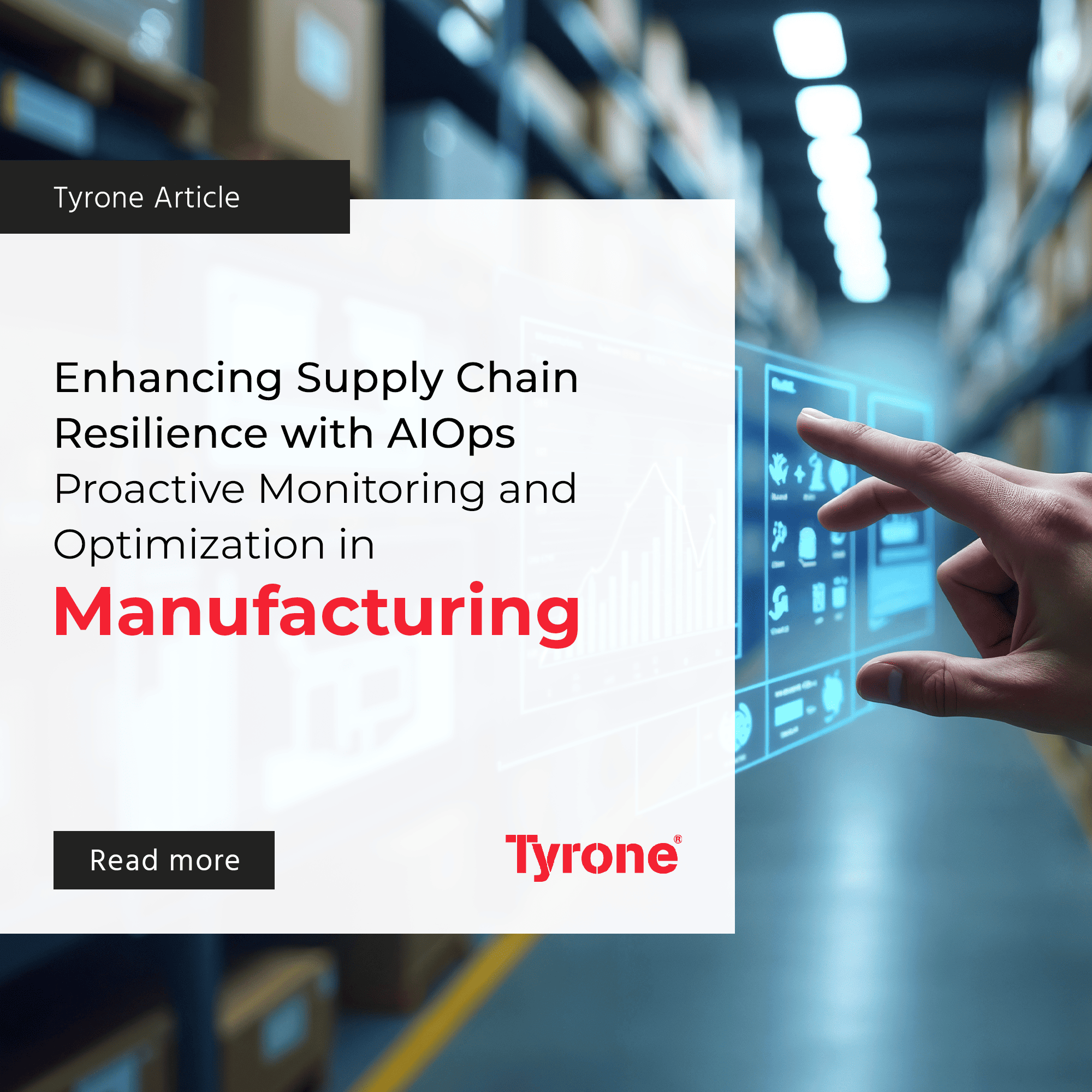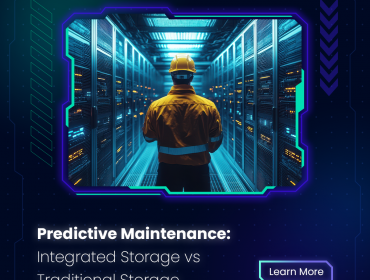Introduction: Navigating Disruption with Intelligence
In an era of frequent supply chain disruptions, ranging from geopolitical tensions to raw material shortages, manufacturers are compelled to evolve beyond traditional ERP and SCM tools. Artificial Intelligence for IT Operations (AIOps) is emerging as a crucial lever for manufacturers seeking resilience, agility, and real-time responsiveness. By integrating AI-driven insights across IT operations, AIOps allows stakeholders to proactively manage risks, optimize workflows, and ensure continuity across global supply chains.
Why AIOps Is Now a Business Imperative in Manufacturing
AIOps is not merely an IT tool, it is a business continuity enabler. Unlike traditional monitoring systems that generate siloed alerts, AIOps platforms analyze massive volumes of machine data in real-time, correlate anomalies, and deliver actionable insights to avert downtime and reduce latency.
In manufacturing, where even a 1% downtime can lead to millions in lost revenue, the predictive capabilities of AIOps are vital.

Proactive Monitoring: From Reactive Alerts to Predictive Insights
Traditional IT operations in manufacturing rely on threshold-based monitoring, only flagging issues after they’ve occurred. AIOps replaces this model with real-time telemetry analysis, enabling predictive alerts that forecast system failures or performance bottlenecks before they affect production.
For example, by analyzing sensor data from production lines, AIOps platforms can detect subtle changes in vibration, temperature, or load, indicators of machine wear that are otherwise invisible. This reduces unplanned outages, allowing manufacturers to shift from emergency repairs to scheduled interventions.
Supply Chain Visibility and Optimization through Intelligent Correlation
Supply chains are complex, multi-node ecosystems prone to cascading failures. AIOps improves supply chain visibility by integrating data from various sources, IT systems, IoT devices, third-party logistics platforms, and ERP systems, into a unified operational view.
This correlation enables real-time decision-making. For instance, if a supplier shipment is delayed, AIOps can automatically reroute production plans, notify stakeholders, and initiate contingency workflows. According to IDC, 60% of Asia’s Top 2000 Companies Use GenAI Tools for Major Supply Chain Overhauls (Source: IDC).
Operational Agility through Dynamic Resource Allocation
Manufacturing operations often struggle with rigid resource allocation. AIOps provides dynamic adaptability by analyzing workloads across networks, production units, and cloud environments.
For example, if there is a sudden increase in demand for a specific product line, AIOps can automatically reallocate computing and storage resources to ensure that mission-critical applications remain functional. This helps guarantee uninterrupted production and logistics coordination. According to Gartner, 30% of enterprises will automate more than half of their network activities by 2026. (Source: Gartner)
Risk Mitigation and Resilience through Pattern Recognition
One of AIOps’ most valuable capabilities is anomaly detection through pattern recognition. By training machine learning models on historical data, AIOps systems can spot early warning signs of security breaches, system overloads, or infrastructure failures that might otherwise go unnoticed.
In a manufacturing context, this could mean identifying a pattern that usually precedes a raw material stockout or flagging irregular API call volumes that signal a potential ransomware attack on the logistics control system.
Enhancing Human Decision-Making with Augmented Intelligence
AIOps doesn’t replace human operators, it augments their capabilities. With the deluge of operational data, human decision-making often suffers from delays or incomplete information. AIOps acts as a co-pilot, delivering contextual intelligence and prioritizing alerts based on business impact.
This allows operations managers to focus on high-priority disruptions while automating resolution for routine incidents.

Conclusion: AIOps as a Strategic Asset in the Digital Supply Chain
For stakeholders, AIOps is more than an efficiency tool, it is a strategic asset. It not only strengthens operational resilience but also provides a competitive edge by reducing risk exposure, ensuring regulatory compliance, and accelerating decision velocity.
As manufacturers continue to digitize their supply chains, AIOps will become foundational to their ability to sense, analyze, and respond to change, turning volatility into an advantage.












